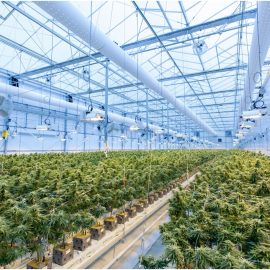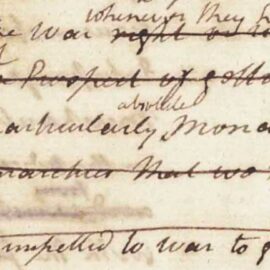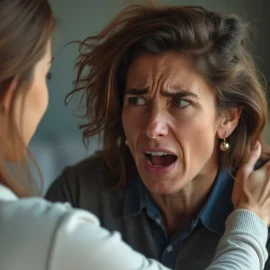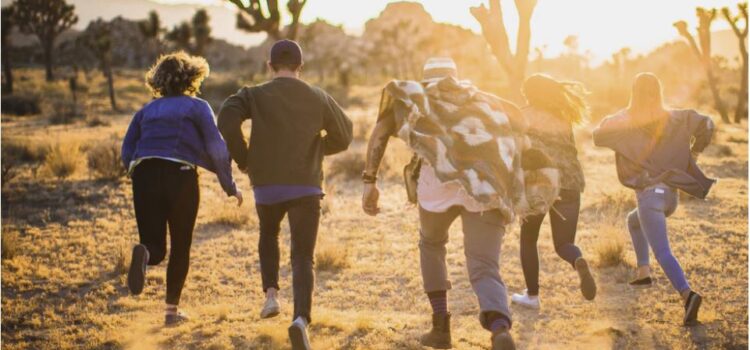
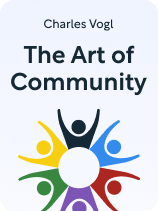
This article is an excerpt from the Shortform book guide to "The Art of Community" by Charles Vogl. Shortform has the world's best summaries and analyses of books you should be reading.
Like this article? Sign up for a free trial here.
What defines a community? What are the basic requirements of a community?
According to Charles Vogl, a community is a formal or informal collective of people who care about each other and support each other’s growth. Within communities, people develop culture through meaningful relationships.
Keep reading to learn more about what makes a community special.
Defining Community
Communities demonstrate care by fostering relationships between members, which creates a sense of belonging (the feeling that others welcome and value you). They support members’ growth by sharpening their skills and helping them refine their character.
(Shortform note: One reason to be part of a community is that it can help you satisfy a basic psychological need. According to experts, humans are a fundamentally interdependent, social species; being in community with others enhances our well-being because we’re innately wired for connection. The psychologist Abraham Maslow referred to this as our need for “belongingness and love.” According to Maslow, once that need is met, we can then work on fulfilling our need to gain respect and reach our full potential. Being part of a community can help with those needs, too—as Vogl explains, communities sharpen our skills and refine our character.)
Care and mutual support are what define a community, but Vogl explains that as a community develops, it develops a few other key features, too.
First, community members honor a common moral code. Vogl says people join communities because they want to be near people who care about the same things they do—for example, you might join a book group because you value literature and want to explore it with like-minded people.
A community’s ethical beliefs also tend to guide members’ behavior: Within a community that shares certain values, you’re more likely to devote time to the causes you care about, and there can be negative consequences when you fall short of community standards. For example, if you’re unfriendly to someone in your book club because they enjoy a different genre than you do, other members might question what you truly value and might even leave the community if the problem seems widespread.
(Shortform note: While being part of a community with a common moral code can help guide your decision-making in positive ways, there’s also a dark side to this phenomenon. Psychologists call this groupthink—the tendency to value community consensus over individual agency or the ability to speak one’s mind. Groupthink can lead to poorer community outcomes, since individual members are discouraged from bringing up potential pitfalls of a decision. For example, some experts believe that groupthink contributes to bullying—when some members of your community decide it’s okay to make fun of someone else, you might struggle to voice your concerns because you value conforming to your community’s moral code.)
Second, membership in the community comprises part of your identity. Vogl explains that when the moral code you share with your community guides your thinking and behavior, your self-perception changes: You see yourself as a particular kind of person (the kind who belongs to that particular community and honors its moral code). When your community is together, members support each other in being the kind of people you’d like to be.
(Shortform note: Experts note that identity is multifaceted—you probably belong to more than one community (say, a religious organization and a hobby club), and each community you belong to comprises part of your identity. When two or more of your communities have conflicting moral codes or are otherwise incongruous, you might feel some cognitive dissonance (the sense that you’re not doing what you’re supposed to be doing) or even experience an identity crisis. For example, many people report that they struggle to resolve the tension between their religious identities and their LGBT identities. To achieve cognitive consonance and a cohesive identity, experts recommend getting in touch with your most authentic self.)
Finally, as a result of the other two features, people within a community just get each other. Vogl explains that since you share a moral code, behavioral standards, and aspects of your identity, you naturally relate to and empathize with each other, and you’re at ease in each other’s company. To illustrate, LGBT people often value being part of an LGBT community because they don’t have to explain their gender and sexuality-related experiences in that community the way they do among cisgender and straight people.
(Shortform note: While Vogl says that people in communities just get each other, that’s not always the case—community members may sometimes be in conflict with each other. According to experts, this is most likely to occur when members move past the beginning stages of community membership (when they’re most inclined to be agreeable) and get comfortable being themselves. Conflict then arises when members’ personalities or identities clash. For example, LGBT communities sometimes experience conflict related to race and other facets of identity—just because members can relate to each other when it comes to gender and sexuality doesn’t mean that all their experiences, beliefs, and desires are shared.)

———End of Preview———
Like what you just read? Read the rest of the world's best book summary and analysis of Charles Vogl's "The Art of Community" at Shortform.
Here's what you'll find in our full The Art of Community summary:
- The fundamental guidelines all communities should follow
- How to institute a community meeting place and set of customs
- How you can enhance belonging within your community

